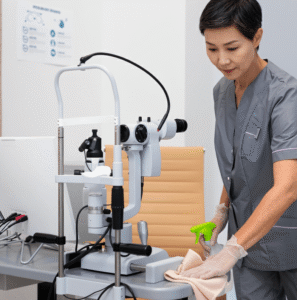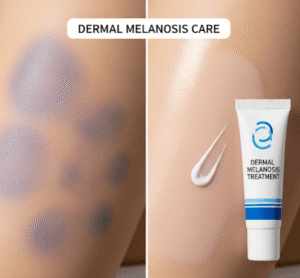Overview
Consent to treatment is a fundamental legal and ethical requirement in healthcare, where a patient voluntarily agrees to undergo medical procedures or interventions after receiving adequate information about the risks, benefits, and alternatives. Consent ensures patient autonomy, protects their rights, and guides safe medical practice.
Importance of consent:
- Upholds patient autonomy and decision-making rights.
- Protects healthcare providers and institutions legally and ethically.
- Ensures patients are fully informed about treatment options.
- Builds trust between patients and healthcare professionals.
In South Korea, consent is legally required for all medical procedures, including routine tests, surgery, and research participation. Healthcare providers follow strict informed consent protocols to ensure clarity, transparency, and patient understanding.
Why It’s Done
Consent to treatment is required for legal, ethical, and clinical reasons.
Common reasons include:
- ➤ Legal compliance: Ensures adherence to national healthcare laws and patient rights regulations.
- ➤ Ethical practice: Respects patient autonomy and shared decision-making.
- ➤ Risk awareness: Patients are informed about potential benefits, risks, and complications.
- ➤ Documentation of agreement: Protects both patients and healthcare providers.
- ➤ Medical decision-making: Enables patients to participate actively in choosing or refusing treatment.
Benefits for patients:
- ✔️ Patients understand what to expect from medical procedures.
- ✔️ Promotes trust, cooperation, and satisfaction with care.
- ✔️ Reduces misunderstandings, disputes, or legal claims.
- ✔️ Encourages active involvement in healthcare decisions.
Alternatives
While consent itself is mandatory, certain alternatives or exceptions may apply depending on circumstances:
- ➤ Implied consent: For routine care or emergencies where verbal or non-verbal agreement is assumed.
- ➤ Proxy consent: Provided by a legal guardian, parent, or healthcare proxy when the patient is a minor or incapacitated.
- ➤ Advanced directives: Written instructions specifying consent preferences for future care.
- ➤ Refusal of treatment: Patients have the legal right to decline medical interventions after understanding consequences.
Key point: Consent is flexible but must always respect patient rights and legal frameworks.
Preparation
Proper preparation for consent ensures comprehension, clarity, and informed decision-making.
Steps include:
- ✅ Patient education: Explain the procedure, purpose, benefits, risks, and alternatives.
- ✅ Use of plain language: Avoid medical jargon; use interpreters if needed.
- ✅ Documentation: Provide consent forms, written instructions, and educational materials.
- ✅ Assessment of capacity: Confirm patient understands information and can make decisions.
- ✅ Time for questions: Allow patients to ask and clarify doubts before agreeing.
- ✅ Voluntariness: Ensure consent is free from coercion or undue influence.
Important: Proper preparation reduces misunderstandings and ensures valid informed consent.
How It’s Done
Consent is a process rather than a one-time event, involving communication, understanding, and documentation.
Procedure steps:
- Information disclosure: Explain diagnosis, proposed treatment, benefits, risks, alternatives, and consequences of refusal.
- Patient comprehension: Confirm understanding through discussion or questioning.
- Voluntary decision: Ensure agreement is free and voluntary, without pressure.
- Documentation: Complete written or electronic consent forms, signed by the patient or proxy.
- Ongoing consent: Re-confirm consent if treatment changes or complications arise.
Duration: Varies based on complexity; from 5–10 minutes for minor procedures to longer sessions for complex treatments.
Hospital stay: Not required; part of standard outpatient or preoperative protocol.
Key point: Consent is interactive, informed, voluntary, and continuously revisited throughout treatment.
Recovery & Post-Consent Care
While consent itself does not require medical recovery, post-consent care involves ensuring understanding and follow-up.
Immediate post-consent:
- Confirm patient is comfortable and clear about procedure timing and instructions.
- Provide contact information for questions or changes.
Ongoing care:
- Update consent if procedure changes, risks emerge, or patient requests modification.
- Maintain accurate records for legal and clinical reference.
- Encourage feedback and clarification for patient satisfaction.
Long-term outcomes:
- Reduces disputes, confusion, and complaints related to medical treatment.
- Enhances patient confidence, engagement, and adherence.
- Strengthens ethical standards and institutional credibility.
Important: Consent is part of continuous patient-centered care and ensures safety, legality, and transparency.
Possible Complications / Risks
Consent itself is low-risk but potential challenges include:
- ⚠️ Misunderstanding or inadequate information: Can lead to uninformed decisions.
- ⚠️ Coercion or undue influence: Invalidates consent legally and ethically.
- ⚠️ Documentation errors: Missing signatures, incomplete forms, or miscommunication.
- ⚠️ Language or literacy barriers: May prevent proper understanding.
- ⚠️ Emergency exceptions: Consent may be bypassed in life-threatening situations, but must be documented.
In South Korea, consent protocols are strictly monitored, especially for invasive procedures, surgeries, and research participation, with standardized forms and ethical oversight committees.
Treatment Options / Clinical Relevance in Korea
Consent is mandatory across all healthcare settings in South Korea, guided by laws such as the Medical Service Act and Bioethics & Safety Act.
Key features:
- 🏥 Written informed consent required for surgeries, procedures, and research participation.
- 🏥 Verbal consent acceptable for minor or routine interventions with proper documentation.
- 🏥 Proxy consent recognized for minors or incapacitated adults.
- 🏥 Advanced directives and living wills legally recognized for future treatment decisions.
- 🏥 Hospitals provide patient education, translated materials, and counseling to ensure comprehension.
Highlights in Korea:
- ✔️ Protects patient autonomy and legal rights.
- ✔️ Supports ethical and safe medical practice.
- ✔️ Integrated into hospital accreditation and quality care standards.
- ✔️ Enhances patient trust, engagement, and satisfaction with healthcare.
Highlights
- ➤ Consent to treatment is a legal and ethical requirement for all medical interventions.
- ➤ Indicated for surgeries, procedures, medication administration, research participation, and routine interventions.
- ➤ Alternatives or exceptions include implied consent, proxy consent, advanced directives, and refusal of treatment.
- ➤ Preparation involves patient education, assessment of capacity, plain language explanation, and documentation.
- ➤ Consent process includes information disclosure, comprehension check, voluntary agreement, and ongoing confirmation.
- ➤ Post-consent care ensures clarity, follow-up, and continuous patient engagement.
- ➤ South Korea mandates informed consent with standardized forms, legal oversight, and ethical monitoring in all healthcare settings.













